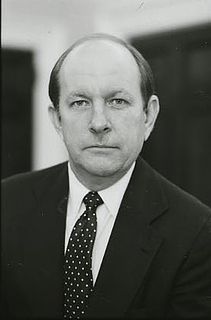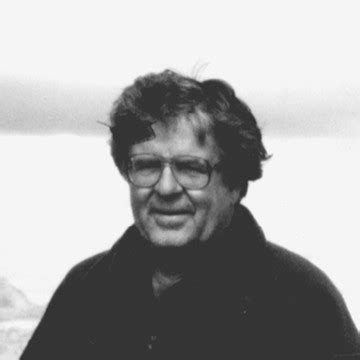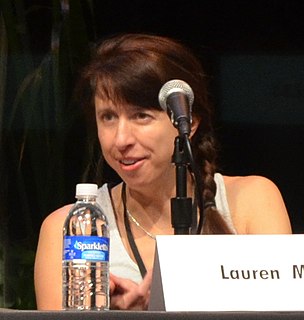A Quote by Michael Deaver
I think it's very dangerous for a free society to have all the information distilled and packaged by our government and given to us. Do we know to this day who we killed in Iraq? I don't think so. If bringing war into the living room means that we as a people will say we don't want to do it that way anymore we want to figure out other ways to solve these conflicts, then I would say that photography and television have done us a great service.
Quote Topics
Related Quotes
I don't believe that the American people want us to focus on our job security. They want us to focus on their job security. I don't think they want more gridlock. I don't think they want more partisanship. I don't think they want more obstruction. They didn't send us to Washington to fight each other in some sort of political steel-cage match to see who comes out alive. That's not what they want. They sent us to Washington to work together, to get things done, and to solve the problems that they're grappling with every single day.
I made a lot of money with the Chinese, and I know the Chinese very well. By the way, they don't love us. I will tell you that. Just in case anybody has any question. They don't. They always say, "Oh, but they have our debt." Think of it they take our money and then they loan it back to us and we have to pay 'em interest. It's very... It would be something to solve very easily, if you have the right messenger. We don't have the right messenger. Barack Obama is the wrong messenger.
I want to think I deserve what I get. I don't want to consider how vastly I am overly rewarded. I don't want to consider the injustices around me. I don't want any encounters with the disenfranchised. I want to say it's not my fault. But it is, it's yours and mine, and ours. We'd better figure out ways to spread some equity around if we want to go on living in a society that is at least semi-functional. It's a fundamental responsibility, to ourselves.
I don't want the words to be naked the way they are in faxes or in the computer. I want them to be covered by an envelope that you have to rip open in order to get at. I want there to be a waiting time -a pause between the writing and the reading. I want us to be careful about what we say to each other. I want the miles between us to be real and long. This will be our law -that we write our dailiness and our suffering very, very carefully.
It hurts to see that everything on television is based on pillaring people. Nobody's sort of given the opportunity to be nice anymore. I think that is somewhat reflective of tragically the society that we live in today where we want to know people off their pedestal or we want to hurt, we want to harm instead of boosting and following by example. It's always about the crud of society, the black sheep of society that producers seem to think the public wants rather than my old theory of the cream rising to the top.
Press information is serious information, but press information is also manipulated by people who want you to think that this and that happened. So it's the old thing that you still cannot trust photography at all or you have to know who is distributing the photograph. In terms of cell phone photography, I think nobody cares about a photograph anymore because they're taking so many pictures just for fun.
I think we are living in an era of being hyper-concerned about, Is it us? Because we have this historical awareness. People really want to know: will it be us or our kids or our grandkids to live through this? We don't want it to happen, we don't want to be the ones with the poisoned water, but at the same time, I think there is this curiosity, like, Am I one of the "lucky" ones who gets to be here at the end? That's the tension I'm interested in.
For some people, I got away with something. And you know what? That's a fair thing to say, for them. I'm not saying I agree with that, but I can see how they can say that. But it's a matter of just like...you know, I'm really fortunate. As a journalist, I don't have to agree with you to talk to you. My job is to figure out why you think the way you think. I want to get to the root of why you think the way you think. That's what I find most fascinating as a storyteller.
My first policy move would be to try to get a conversation going in the US about what people stand for and what we really want. Do we want to keep adding people to the world and to our country until we move to a battery-chicken kind of existence and then collapse? Or do we want to think hard about what really is valuable to us, and figure out how many people we can supply that to sustainably?
You know why I think we still execute people? Because, even if we don't want to say it out loud-for the really heinous crimes, we want to know that there's a really heinous punishment. Simple as that. We want to bring society closer together-huddle and circle our wagons-and that means getting rid of people we think are incapable of learning a moral lesson. I guess the question is: Who gets to identify those people? And what if, God forbid, they got it wrong?
I'm a complete libertarian. I think it's very, very dangerous. I really mean that. I think the smoking ban is a tip of an iceberg of society - the leaders of society telling us how to be. I think it's not their business. It's an attitude where the governors think, 'We know what's best for people, and they're so stupid that they would only not do it if we ban it.'
I think Russia is dangerous, not a superpower. I know what the president is trying to say. I worked for him for five years, not just two.He doesn't want us to overreact. He doesn't want to go back to the Cold War and some superpower competition. But my own view, and I think General Mattis stated something similar today, is that Russia is a challenge for the United States. It is a threat to some of our allies.
































